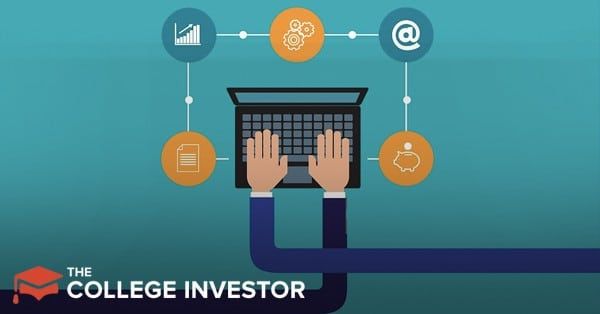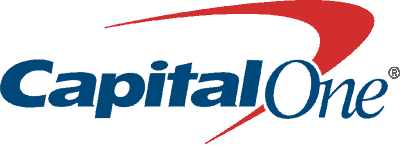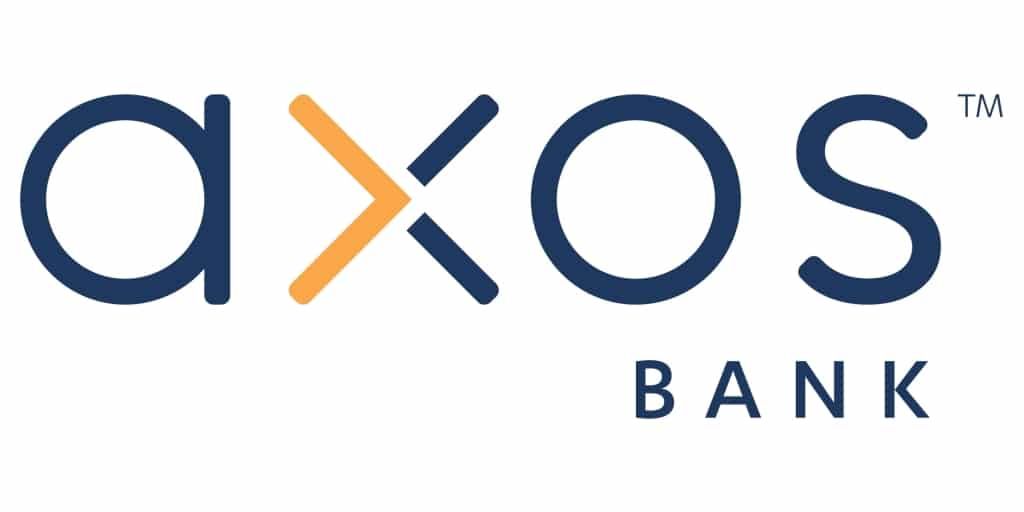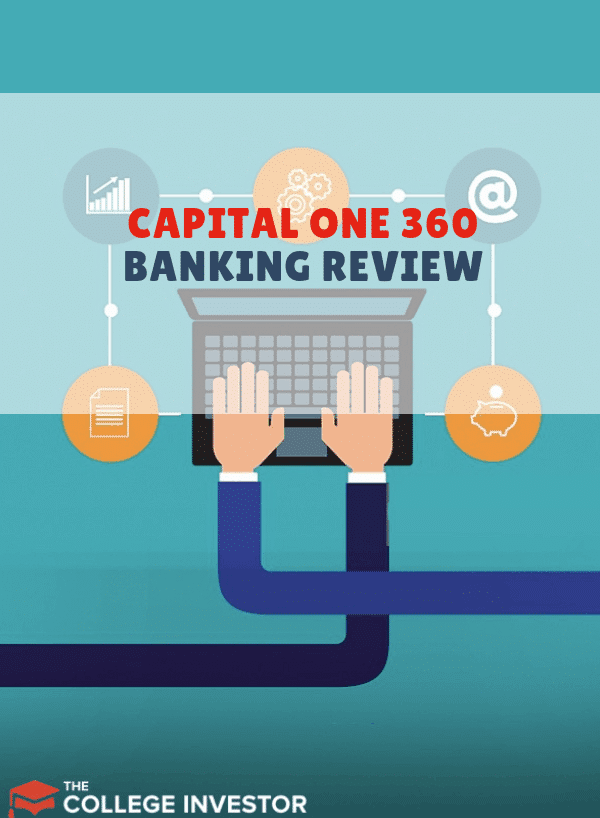
Capital One Bank was an early leader in the online checking and savings space.
Its money market and high-yield savings accounts truly had the highest yields, and its CDs and checking accounts consistently topped yield charts too.
Unfortunately, yields and fees at Capital One are no longer best in class. If you have an account at this Internet banking giant, is it time to move it? Or is it worth staying put (or even transferring your money to Capital One)? This review gives a detailed overview of banking at Capital One.
Capital One 360 Details | |
|---|---|
Product Name | Capital One Bank |
Min Deposit | $0 |
APY | |
Account Type | Checking, Savings, CDs, Teen Checking, Kids Savings |
Promotions | None |
What Is Capital One Banking?
Capital One was founded by Richard D. Fairbank ad Nigel Morris in 1988 as the credit card division of Signet Financial Corp. In 1994, the division was spun-out into its own company and renamed Capital One with Fairbank named its CEO.
Over 25 years later, Fairbank still serves as Capital One's CEO. And under his leadership, the company's financial products have steadily grown. In 2012, it acquired ING Direct and rebranded the banking products as Capital One 360.
Now, Capital One mostly refers to its banking division as Capital One Bank, but many of its underlying products still use the "360" prefix. Today, Capital One as a whole is the fifth-largest consumer bank in the U.S. and eighth-largest bank overall.
Capital One also has it's Capital One Shopping platform where you can earn rebates and rewards for shopping.
What Does It Offer?
Capital One is a huge brand, and it issues credit cards, auto loans, and more. Here are a few of its most important banking products.
360 Checking
As will all Capital One banking account, there are no monthly fees for 360 Checking. And you’ll earn an annual percentage yield of 0.10% on all balances. You could also receive your direct deposit paychecks up to two days early.
Capital One doesn’t reimburse ATM fees from other banks, but users can use 70,000+ Capital One, MoneyPass® and Allpoint® ATMs for free. Note that while Capital One ATMs can accept cash deposits, MoneyPass® and Allpoint® ATMs can't.

It was recently announced that Capital One and CVS® have partnered up to offer another way for customers to deposit cash. Now, you can select the "Add Cash in Store" option inside the Capital One mobile app to make a deposit with a CVS cashier. With this option, you can deposit up to $999 of cash per day and 5 transactions a month.
See how Capital One 360 Checking compares on our list of the best free checking accounts.
360 Performance Savings
Capital One eliminated their money market account and simplified their savings account - giving a top rate with no balance requirements! It yields 4.25% APY and has no monthly fees.
Capital One makes it really easy to set up new accounts. Want a new vacation fund, car fund, house fund, and Christmas present fund? No problem. You can easily have as many high-yield savings accounts as you want. In my experience, savings accounts are one of the best ways to ensure that you’re funding all your important goals.
If you get paid regularly (or even if you don’t), you may want to set up an automatic savings plan that transfers money from a checking account to a savings account. These are easy to set up and adjust with Capital One.
See how Capital One 360 Performance Savings compares to other top online savings accounts.
Kids Savings Accounts
Kids can earn 0.30% on all their savings balances. An adult username and password is required for actually transferring money (so kids can spend it).
Related: Check out this list of kid and teen checking accounts.
MONEY Teen Checking
Teen accounts give teens a fee-free, no-minimum checking account. Teens will earn 0.10% APY on all checking account balances. At age 18, the teen account automatically becomes an adult account at Capital One. Parents have joint ownership of the MONEY account and can help teens set up savings plans, transfer money, etc.
See how they compare to other college student checking accounts.
360 CDs
Capital One offers high-yield CDs. Customers can have CDs ranging from 6 months to 60 months and rates range from 0.20% to 2.60% APY.
See how they compare to other top bank CD rates.
Are There Any Fees?
Capital One doesn’t charge any monthly fees. You also won't pay any fees for making cash withdrawals if you use one of the 70,000+ ATMs that are part of Capital One's network. Cash deposits are also free if you use a Capital One-branded ATM. It's unclear, though, if a fee will apply if you deposit cash at a CVS location.
If you use a Capital One debit card in a foreign country, you don’t have to pay a foreign transaction fee. That's great news if you're a frequent international traveler. Note that Capital One charges $35 for overdrafts, however it offers three options to help you avoid this fee.
The first option is Auto-Decline which, as the name suggests, simply won't allow overdraft transactions to go through. The second option is Next Day Grace which gives you a full business day to replace the overdraft amount without incurring the $35 fee. And, finally, you can choose Free Savings Transfer which moves funds automatically from your 360 Performance Savings account to cover the transaction without charging you any fees.
How Does Capital One Bank Compare?
While 0.40% on a savings account is a solid yield in today's low-rate environment, it's a tad lower than other top online banks such as Chime and Axos Banks. Also, many online banks will reimburse you for other bank’s ATM fees. Unfortunately, that’s not the case with Capital One. Here's a quick look at how Capital One Bank compares:
Header |  |  | |
|---|---|---|---|
Rating | |||
APY | 4.25% | 2.00% | 0.61% |
Monthly Fees | $0 | $0 | $0 |
Min Deposit | $0 | $0 | $0 |
ATM Access | 70,000+ Free ATMs | 60,000+ Free ATMs | Unlimited |
FDIC Insured | |||
Cell | Cell |
How Do I Open An Account?
Capital One Bank has one of the fastest account opening processes you'll find. It only takes about 5 minutes whether you open your account online or in person. There are no minimums to get started and you can easily add beneficiaries to your account as well.
Is It Safe And Secure?
Yes, as a member FDIC bank, Capital One's deposit accounts come with $250,000 of FDIC insurance per depositor. The company's also uses strong website encryption and offers multi-factor authentication to further protect your account.
How Do I Contact Capital One Bank Support?
Capital One is definitely a digital-forward bank. But depending on where you live, you may be able to access a Capital One branch or Café. You can see a list of brick-and-mortar locations here.
If you don't happen to live near a Capital One Café or branch, you can reach out to customer support by phone at 1-800-655-BANK (2265) from 8 AM-11 PM (EST). Capital One has been accredited with the Better Business Bureau (BBB) since 1995 and currently has an A rating.
Why Should You Trust Us?
The College Investor has been actively tracking the best savings account rates since 2018, with a daily updated list that monitors roughly 50 banks and credit unions that have a history of great rates. But we also are always scouting out other banks that may compete on this list.
Unlike other well-known companies who create "best savings account rate lists", we strive to put out rates in order highest to lowest so that you can know you're actually getting the best rate. And if you don't make the cut, too bad. You can find the full list of our bank review here.
Who Is This For And Is It Worth It?
Overall, Capital One has a solid suite of banking products and it makes it easy to manage your account online or on the go. But its yields are slightly lower than the best that are available today. If you’re looking for the top yield, we recommend Chime, CIT Bank, Axos, or Ally Bank rather than Capital One.
Capital One Bank FAQs
Here are a few of the most common questions that people ask about Capital One Bank:
What is a Capital One Café?
Capital One Cafés are comfortable spaces that offer free Wi-Fi, Peet's Coffee® (50% off for Capital One cardholders), and in-person support from certified Money Coaches.
Do you need to make a deposit to open a Capital One 360 bank account?
No, but if you don't make your first deposit within 60 days, your account will be closed.
Does Capital One have a no-penalty CD?
No, all of Capital One's CDs charge fees for early withdrawals.
Are there any Capital One Bank bonus offers?
Not right now, but stay tuned because Capital One has been known to periodically run solid bonus offers for new customers.
Capital One Bank Features
Account Types |
|
Minimum Deposit | $0 |
APY |
|
Maintenance Fees | $0 |
Overdraft Fee | $35 |
Foreign Transaction Fee | $0 |
Branches | Yes, full branches as well as Capital One Cafés |
Mobile Check Deposits | Yes |
Cash Deposits | Yes |
Checkbook Support | Yes |
ATM Availability | 70,000+ fee-free ATMs that part of the Capital One, MoneyPass® and Allpoint® networks |
Customer Service Number | 1-800-655-BANK (2265) |
Customer Service Hours | 8 AM-11 PM (EST) |
Mobile App Availability | iOS and Android |
Bill Pay | Yes |
FDIC Certificate | |
Promotions | None |
Capital One 360 Review
-
Interest Rates
-
Fees and Charges
-
Customer Service
-
Ease of Use
-
Tools and Resources
-
Products and Services
Overall
Summary
Capital One is a full service bank that has a wide range of services, including checking, savings, and more.
Pros
- Near-top rates for savings accounts
- Large ATM network
- Kids and teen accounts
- No monthly fees
Cons
- Doesn’t refund out-of-network ATM fees
- Fewer branch locations than other national, full-service banks

Robert Farrington is America’s Millennial Money Expert® and America’s Student Loan Debt Expert™, and the founder of The College Investor, a personal finance site dedicated to helping millennials escape student loan debt to start investing and building wealth for the future. You can learn more about him on the About Page or on his personal site RobertFarrington.com.
He regularly writes about investing, student loan debt, and general personal finance topics geared toward anyone wanting to earn more, get out of debt, and start building wealth for the future.
He has been quoted in major publications, including the New York Times, Wall Street Journal, Washington Post, ABC, NBC, Today, and more. He is also a regular contributor to Forbes.
Editor: Clint Proctor Reviewed by: Claire Tak
